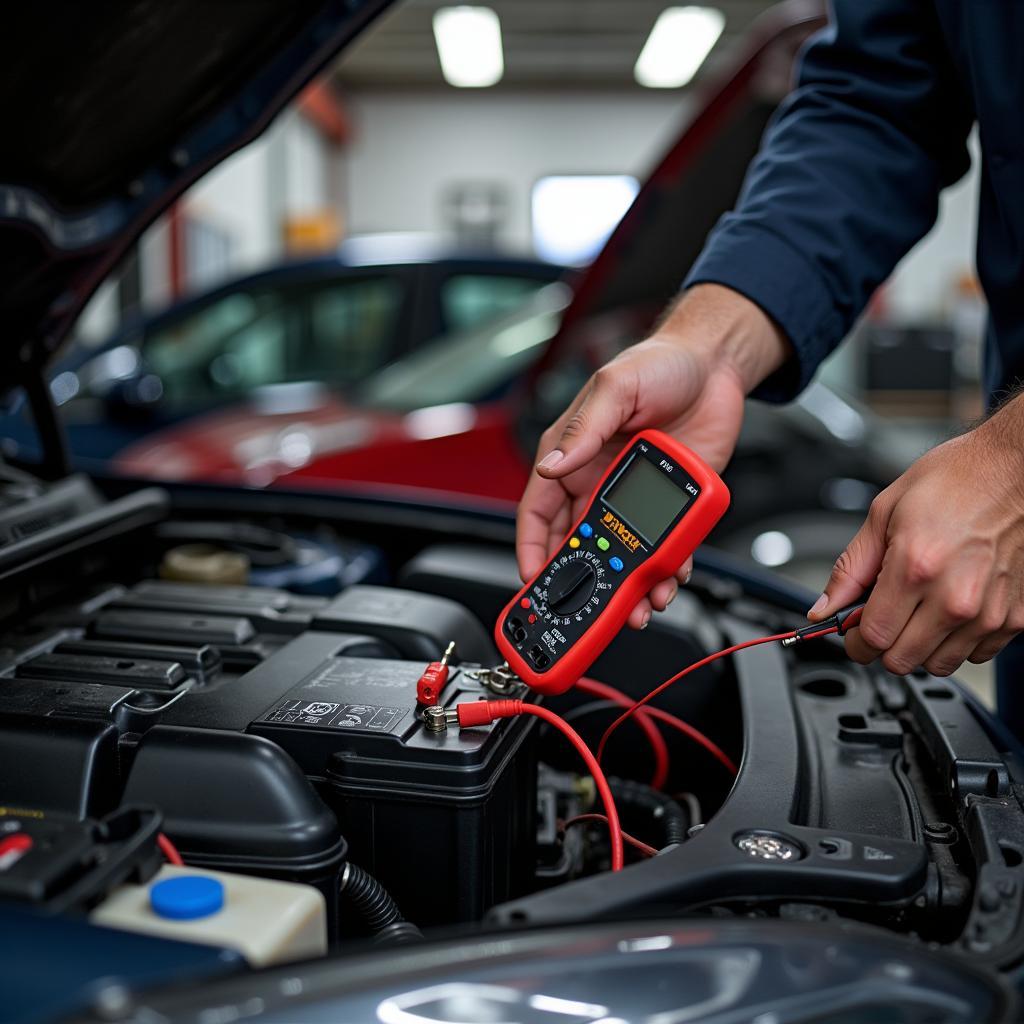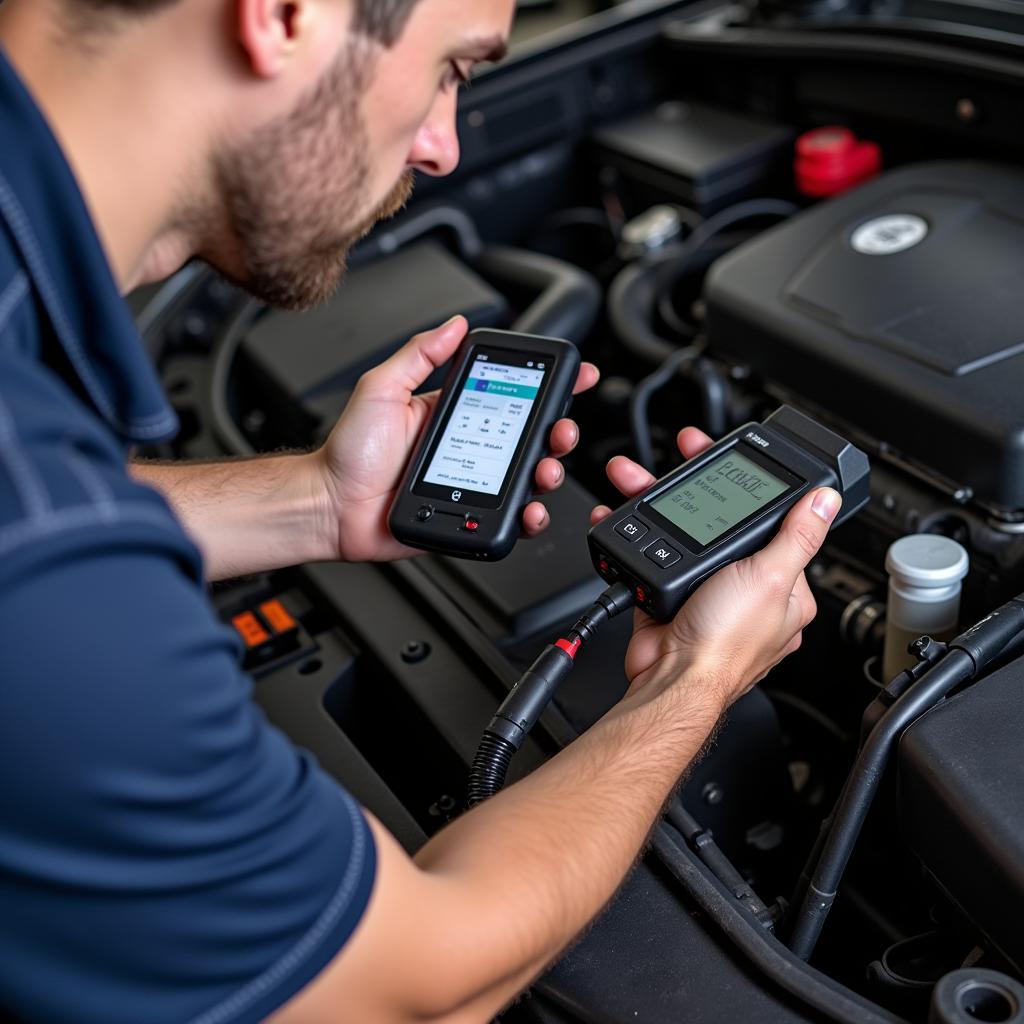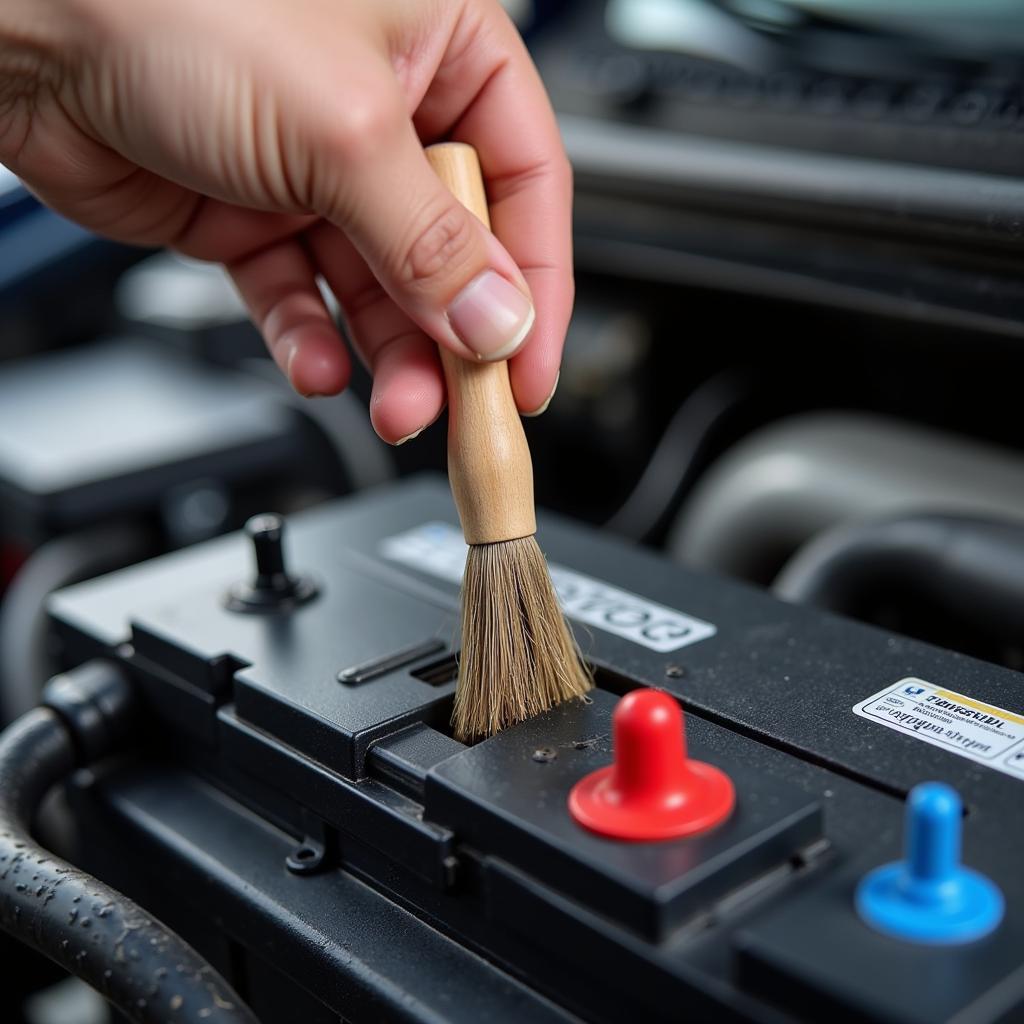Finding a reliable “Car Battery Diagnostic Near Me” is crucial for maintaining your vehicle’s health and avoiding unexpected breakdowns. A dying car battery can leave you stranded, and identifying issues early can save you time, money, and potential headaches. This article guides you through the essentials of car battery diagnostics, helping you make informed decisions about your car’s power source.
Understanding the Importance of Car Battery Diagnostics
Your car battery is the heart of your vehicle’s electrical system, responsible for starting the engine and powering various electronic components. Regular car battery diagnostics are essential to:
- Identify early signs of battery failure: Diagnostics can detect subtle voltage drops or other irregularities that indicate a failing battery, even before you experience noticeable symptoms.
- Prevent unexpected breakdowns: A dead battery can leave you stranded. Regular diagnostics help avoid this by providing ample warning for battery replacement.
- Prolong battery lifespan: Identifying and addressing minor issues early can extend your battery’s life, saving you money in the long run.
- Ensure optimal vehicle performance: A healthy battery ensures all electrical components function correctly, contributing to optimal vehicle performance.
 Car Battery Voltage Test
Car Battery Voltage Test
What Does a Car Battery Diagnostic Involve?
A comprehensive car battery diagnostic goes beyond simply checking the voltage. A qualified technician will perform several tests, including:
- Visual Inspection: Checking the battery for physical damage, corrosion, loose connections, and electrolyte levels.
- Voltage Test: Measuring the battery’s voltage at rest and under load to assess its overall health and charge capacity.
- Starter Test: Evaluating the starter’s draw on the battery to identify any issues with the starting system.
- Alternator Test: Examining the alternator’s function to ensure it’s properly charging the battery while the engine is running.
Signs You Need a Car Battery Diagnostic
While regular car battery diagnostics are recommended, certain symptoms may indicate an immediate need for testing:
- Slow engine crank: If your engine takes longer than usual to turn over, it could be a sign of a weak battery.
- Dim headlights and interior lights: A struggling battery may result in dimmer than usual headlights, especially during start-up.
- Clicking sound when starting: A clicking sound without the engine turning over is a classic sign of insufficient battery power to engage the starter motor.
- Warning lights on the dashboard: The battery or charging system warning light on your dashboard indicates a potential problem with the battery or charging system.
- Old battery age: Car batteries have a limited lifespan, typically 3-5 years. If your battery is approaching or exceeding this age, it’s wise to get it tested.
 Mechanic Performing Car Diagnostics
Mechanic Performing Car Diagnostics
Choosing the Right Place for “Car Battery Diagnostic Near Me”
When looking for a reliable “car battery diagnostic near me”, consider these factors:
- Reputation: Choose a reputable mechanic or auto shop with positive customer reviews and a track record of quality service.
- Expertise: Opt for a service provider with certified technicians experienced in car battery diagnostics and repairs.
- Equipment: Ensure the facility uses up-to-date diagnostic equipment for accurate and comprehensive testing.
- Price: Request quotes from multiple service providers to compare pricing for diagnostic tests and potential repairs.
- Convenience: Consider factors like location, appointment availability, and turnaround time to find a convenient option.
DIY Car Battery Diagnostics: A Viable Option?
While some basic checks can be done at home, professional diagnostics are always recommended for accurate results and safe handling of car batteries. If you’re comfortable working with car batteries, here are a few DIY checks:
- Visual inspection: Look for any visible signs of damage, cracks, leaks, or corrosion on the battery case and terminals.
- Voltage check: Using a multimeter, you can check the battery’s voltage. A fully charged battery should read around 12.6 volts.
However, it’s crucial to remember that DIY checks should never replace professional car battery diagnostics.
Prolonging Your Car Battery’s Life: Useful Tips
- Regularly clean battery terminals: Corrosion on battery terminals can hinder current flow. Clean them with a baking soda and water solution.
- Avoid extreme temperatures: Extreme heat or cold can shorten battery lifespan. Park your car in a shaded area when possible.
- Don’t leave electronics on when the engine is off: Running accessories with the engine off drains the battery.
- Drive your car regularly: Short trips prevent the battery from fully charging. Drive your car for at least 30 minutes regularly.
- Schedule regular battery inspections: Get your car battery professionally inspected at least once a year, or more frequently if you live in a harsh climate.
 Car Battery Maintenance
Car Battery Maintenance
Conclusion
Finding a reliable service for “car battery diagnostic near me” is crucial for keeping your car running smoothly. Regular diagnostics, combined with proper battery maintenance, can significantly extend your battery’s lifespan and save you from unexpected breakdowns. Remember to choose a reputable service provider with experienced technicians and up-to-date equipment for accurate and trustworthy results.

Leave a Reply